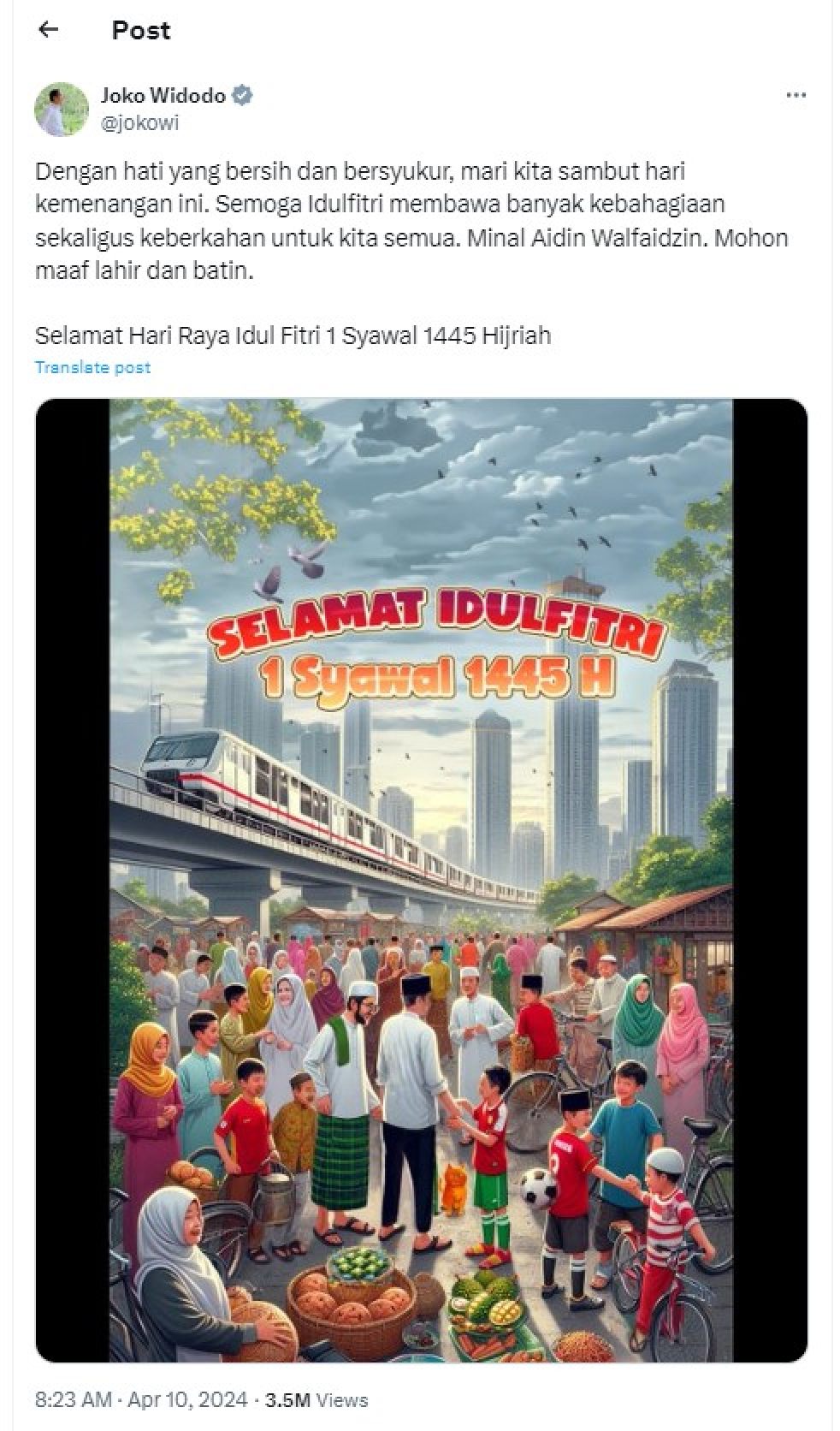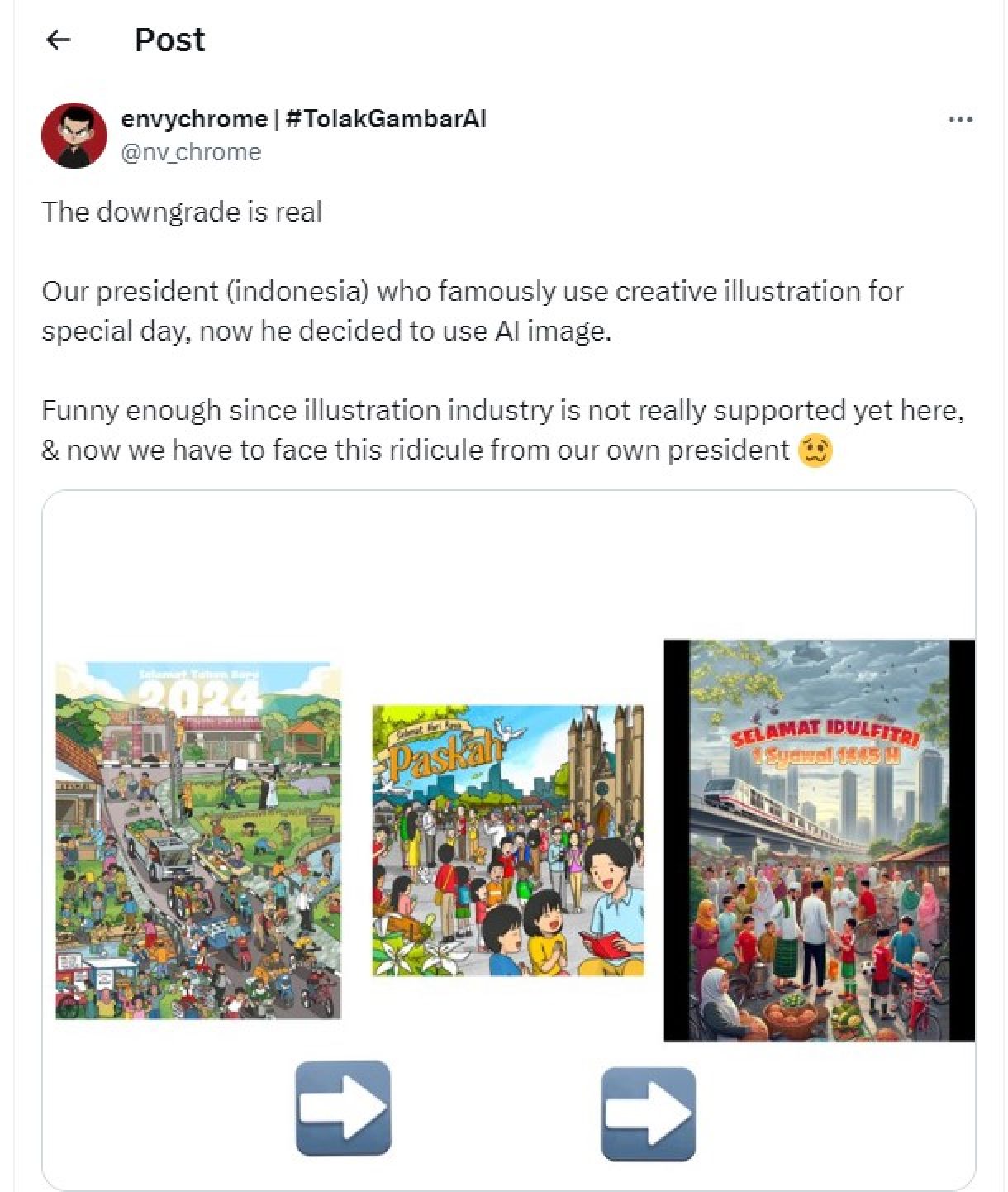Attached to the posts was an image of what appears to be the capital city of Jakarta, featuring a crowd of people in front of an elevated train. The picture was immediately suspected of being AI-generated after users noticed its many oddities, including a floating football, poorly rendered hands, and durians that were cut up like mangoes.

In the past, Widodo’s social media team would include illustrations from local, human artists with such holidays messages. The break with that tradition was seen as particularly offensive by designers and other creative workers, who believe that AI is stealing their work and employment opportunities.
“It is difficult to forgive leaders and their families and colleagues who [prioritise] self-interests and are evil towards the people. Moreover, with this AI, you do not support local illustrators, and [ignorant] to people’s criticism and comments. Indonesian creative and illustration industry, RIP,” user @Ariestanabirah wrote on X.
Another X user, @nv_chrome, posted a message comparing the AI-generated image to previous human illustrations posted by Widodo’s accounts. In the caption, they wrote: “The downgrade is real. Our president, who famously used creative illustration for special days, now he decided to use an AI image. Funny enough since the illustration industry is not really supported yet here, & now we have to face this ridicule from our own president.”

“This is [unforgivable] because you are a president but you’re using AI. Keep up the spirit, fellow illustrators of this country,” Instagram user Adorkablewriter said.
Many internet users also pointed out that Anies Baswedan – the former Jakarta governor who lost to Widodo’s favoured candidate, Prabowo Subianto, in February’s presidential election – posted a “better” non-AI illustration to convey his Eid greetings.
“The way he used illustration instead of AI really speaks volume[s] for his appreciation towards artists,” X user @midgardst commented.

Widodo previously said Indonesia should not fear AI, but instead prepare for the challenges that the technology may bring.
“At the G7, at the G20, at the Asean Summit, everyone was talking about AI, all countries were very afraid about AI. The regulations don’t exist yet, the rules don’t exist yet, the AI keeps running, keeps changing. Everything was discussed. This means that we have to anticipate and prepare ourselves,” Widodo said in September during a speech at Bogor Agricultural University.
“Don’t be afraid of AI. Technology will not be able to beat humans … because machines only have chips, but humans have hearts and feelings.”
‘We refuse to work with it!’: Indonesians push back on country’s digital dreams
‘We refuse to work with it!’: Indonesians push back on country’s digital dreams
A month later, Widodo fell victim to the technology as a video of him speaking in Mandarin was uploaded to X by a user who accused the president of being anti-Islamic and allying himself with China. The now-deleted video was deepfake made using AI deep-learning technology, according to Indonesia’s Ministry of Communications and Informatics.
In 2020, the government launched Indonesia’s National Strategy for Artificial Intelligence 2020-2045, which dictates that AI will be used in five focus areas including healthcare, bureaucracy reform, education and research, food sufficiency, and mobility and smart cities.
A study by consulting firm Kearney and Singapore-based investment firm EDBI in 2020 found that AI could boost Indonesia’s GDP by 12 per cent, or some US$366 billion, by 2030, if it was accompanied by strengthened infrastructure and human capital.
